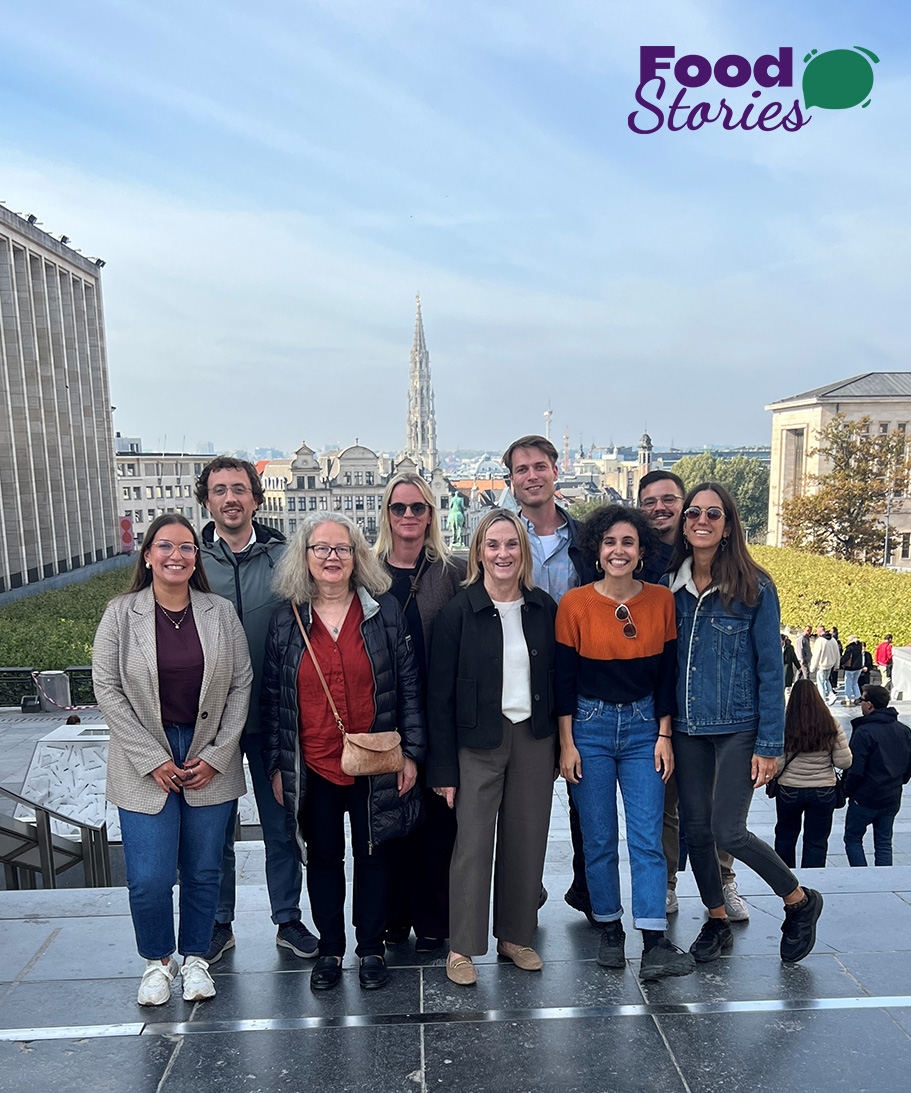FoodStories: Impactful food science communication
Project overview
The FoodStories project is on a mission to equip food science academics at all levels with storytelling techniques that will help them communicate scientific facts and results in a more engaging and memorable way to a non-expert audience.
The project focused on two main goals:
- Increase the ability of food scientists to communicate effectively about their research to non-expert audiences by using storytelling
- Enhance the capabilities of professors and universities to innovate their curricula to teach food science communication through methodologies, good practices and hands-on trainings.
How did we get there?
To achieve this, the project developed a set of practical, open resources that combined theory, hands‑on exercises and real‑world examples.
- We collected good practices in storytelling for food science communication and gathered them into the FOODSTORIES Best Practices Collection
- We developed materials and practical exercises for researchers and scientists to apply storytelling to their research and for professors to include it in their lessons: Exercises Toolbox and Facilitator’s Guide
- We created a video Masterclass on food science storytelling, whose individual videos were designed for both self‑learning and teaching. University educators can embed the Masterclass directly into their courses in food science, communication, or public engagement.
The FOODSTORIES project was funded by ERASMUS+ programme and carried out by an European consortium composed of 5 partners.

Aarhus University (Denmark, Project Coordinator) is a major Danish university with a strong international reputation across the entire research spectrum. Together with University College Dublin (Ireland) they brought academic and research strengths in agricultural and food sciences and nutrition and health sciences and provided with a cohort of students and early career researchers to test the materials and content developed by the project.
European Food Information Council (Belgium) brought the experience of seasoned food science communicators in translating complex food and nutrition into accessible content.
i-strategies (Italy) provided expertise in storytelling techniques and science communication through a narrative approach.
LOBA (Portugal) led the communication and dissemination activities with their skillful experienced team from marketers to designers to developers.

EUFIC contributed to all content related activities throughout the project. This included mapping and analysing best practices, developing learning materials, and shaping the final outputs to ensure clarity, responsibility, and scientific integrity. EUFIC also supported communication and dissemination through its network of collaborators and members across the food sector.
During the project, EUFIC:
- Supported the development the brand identity and the creation of the website
- Contributed to the FOODSTORIES Best Practices Collection, gathering examples of effective science storytelling
- Led the development of the FOODSTORIES Exercises Toolbox and companion Facilitator’s Guide, including by coordinating the testing of these materials through three end‑user workshops
- Contributed to the development of the Masterclass in Storytelling.
Spotlight on: the Exercises Toolbox and Facilitator’s Guide
The FOODSTORIES Exercises Toolbox consists of 19 exercises that cover key storytelling elements and techniques that can be used for science communication divided in four main categories: Foundations, Building your story, Strengthening your story and Maintaining scientific integrity.
The exercises are presented in order, starting from the fundamentals and progressing to more advanced topics. Users can also use the exercise overview to navigate the content based on their educational needs and the section "Possible combinations of exercises" to see suggestions for exercises to try based on expertise level.
Lastly, the section “Learn more about” address common questions and concerns related to using storytelling in food science communication. We give references to additional resources and suggestions for further readings are available at the very end.
In addition to the above, the Facilitator’s Guide provides insights for educators, like university professors, to help them run the exercises in a group setting, for example a workshop or lecture. It also includes tips to apply in live settings and online, from set-up to assessment.
- Giulia Gaggiotti, Knowledge & Operations analyst
- Kenia Fita Capdevila, Collaborative Projects, Junior Manager
- Hashtag: #FoodStoriesEU
- Website: https://foodstories-project.eu/
- Twitter/X: https://twitter.com/foodstories_eu
- LinkedIn: https://www.linkedin.com/company/foodstories-eu/